

My Baby Has Eczema. RUBBER FLIP-FLOPS: Allergen or Not An Allergen? Rubber flip-flops, slippers, shoes…rubber is one of the top allergens and can also cause problems in rubberized plastic.

If you think you might have contact dermatitis, ask your dermatologist for a patch test. 1. WHITE CERAMIC CUP: Allergen or Not An Allergen? While some mugs can have rubberized plastic handles which can cause contact dermatitis, or metal parts with nickel, a plain white ceramic cup is not an allergen.
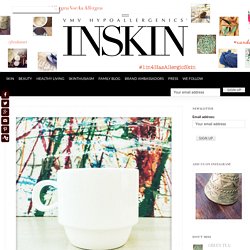
Cobalt is a strong allergen and is present in pottery clay, which can cause contact dermatitis in pottery workers who handle and form the raw materials (in Management of Positive Patch Test Reactions, for example, the recommendation is to avoid “wet alkaline clay containing cobalt.”* But fired and finished white ceramic is not an allergen. If you think you might have contact dermatitis, ask your dermatologist for a patch test. * Wahlberg JE, Elsner P, Kanvera L, Maibach HI, editors. Management of positive patch test reactions. VIRGIN COCONUT OIL: Allergen Or Not An Allergen?
While there have been some reports of reactions to RBD (refined, bleached, deodorized) coconut oils, there are no reported reactions to virgin coconut oil.
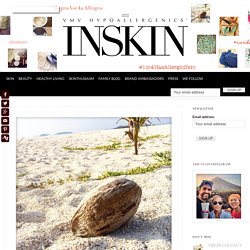
The coconut itself is a drupe, not a nut. If you think you might have contact dermatitis, ask your dermatologist for a patch test. ROSE: Allergen or Not An Allergen? No matter how organic, many flowers and their fragrant oils are allergens.
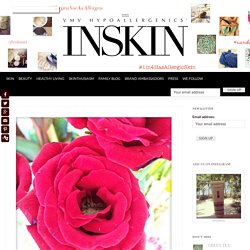
If you think you might have contact dermatitis, ask your dermatologist for a patch test. 1. Wetter, DA et al. Results of patch testing to personal care product allergens in a standard series and a supplemental cosmetic series: An analysis of 945 patients from the Mayo Clinic Contact Dermatitis Group, 2000-2007. J Am Acad Dermatol. 2010 Nov;63(5):789-98.
GREEN TEA: Allergen or Not An Allergen? This is a bit of a tricky one because, for categorization, many patch test results lump green tea in with “botanicals” and all botanicals are listed as optional cross-reactors to fragrance.
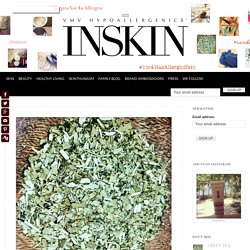
Green tea has no reports of cross reaction with fragrance. What many doctors do is manually remove green tea from the list. In addition… If you think you might have contact dermatitis, ask your dermatologist for a patch test. 1. BRASS: Allergen or Not An Allergen? If it also contains nickel or other allergen-metals, that’s a different story, but unlike many metals, brass, in its original form (with copper, zinc, sometimes tin) is not (currently) on the published list of the most common allergens.

If you think you might have contact dermatitis, ask your dermatologist for a patch test. 1. Wetter, DA et al. The Bride With A Zillion Allergies. By The Allergista Photography: Curtis Lehmkuhl There once was a girl who watched wedding television shows endlessly.

She dreamed of lace, pearls, diamonds and trying on dress after dress after dress until ultimately the perfect one brought her to tears. Flowers, diamonds and fresh linens danced through her head, and every imaginable moment was bursting with love and glitter…fast forward to me sitting in a conference room on my lunch break, practically getting hung up on by a bridal shop employee. YLANG-YLANG, GERANIUM: Allergen Or Not An Allergen? Both are on the published lists of the most common allergens.
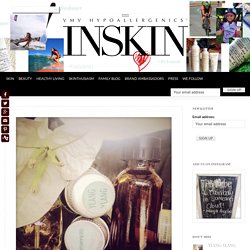
Many essential and aromatherapy oils contain natural ingredients that may smell and feel wonderful but are top allergens. This does not mean that you can’t use any of them…it means two things. First, if you have sensitive skin, opt or a non-allergen oil instead such as virgin coconut oil. Second, if you think you might have contact dermatitis, ask your dermatologist for a patch test. Your results will show exactly which essential oils and other ingredients you need to avoid…and which you can enjoy!
FRESH COFFEE: Allergen Or Not An Allergen? Avoid instant coffees (“just add water”) as some do contain allergens.
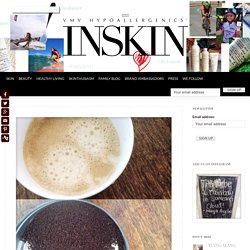
Fresh, and as an ingredient in skin care, coffee is a great source of antioxidants and is not on common allergen lists. If you think you might have contact dermatitis, ask your dermatologist for a patch test. 1. WHITE COTTON TOWEL: Allergen Or Not An Allergen? While rough textures can irritate skin, pure, un-dyed or white cotton is not an allergen.
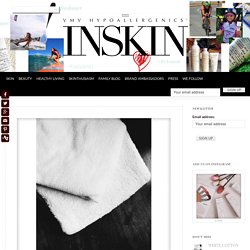
If you have sensitive skin, avoid towels that are blue, red, and brightly colored as they probably contain dyes, many of which are allergens. If you think you might have contact dermatitis, ask your dermatologist for a patch test. If they suspect clothing, they may use a specific patch test tray with more allergens related to clothing materials and dyes. 1. Wetter, DA et al.